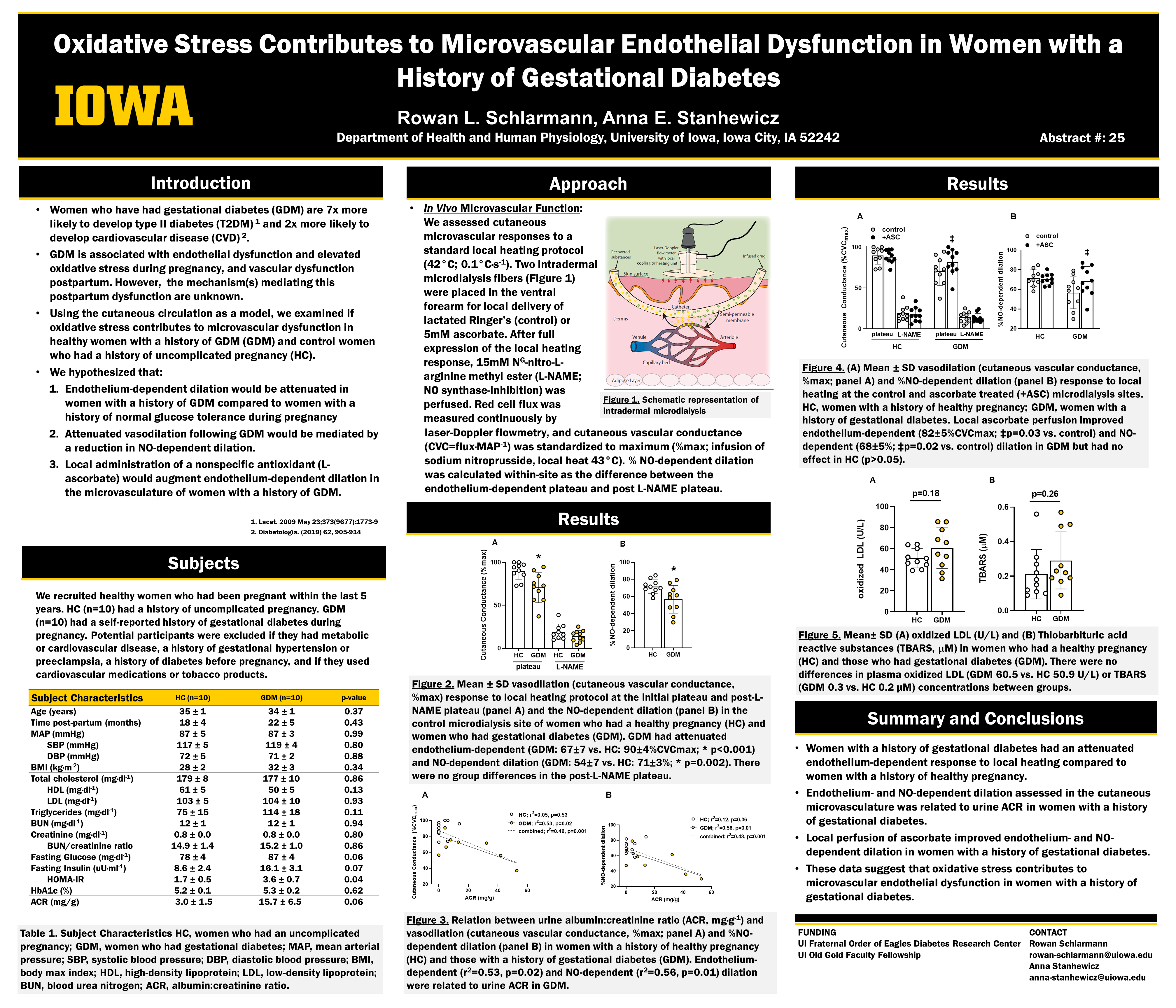
POSTER ABSTRACTS
Materials should NOT be shared with those that are not registered for the conference. Poster abstracts are not proofed for spelling and/or grammar errors.
The poster and/or other information contained on this website may NOT be downloaded and/or used without prior written permission from all authors on the project. If you would like to be connected with the author(s), please email [email protected].
Oxidative stress contributes to microvascular endothelial dysfunction in women with a history of gestational diabetes
Rowan L. Schlarmann, BS’22 and Anna E. Stanhewicz, PhD
Department of Health and Human Physiology, The University of Iowa, Iowa City, IA
Abstract
Women with a history of gestational diabetes (GDM) are 2x more likely to develop cardiovascular disease. GDM is associated with endothelial dysfunction and elevated oxidative stress during pregnancy, and vascular dysfunction postpartum. The mechanism(s) mediating this postpartum dysfunction are unknown. Using the cutaneous circulation as a model, we examined if oxidative stress contributes to microvascular dysfunction in healthy women with a history of GDM. We hypothesized that: (1) endothelium- and nitric oxide (NO)-dependent dilation would be attenuated in women with a history of GDM compared to women with a history of healthy pregnancy (HC), and (2) local antioxidant (L-ascorbate) administration would augment endothelium- and NO-dependent dilation in GDM. Ten HC (35±1yrs) and 10 GDM (34±1yrs) underwent a standard local heating protocol (42°C; 0.1°C·s-1). Two intradermal microdialysis fibers were placed in the ventral forearm for local delivery of lactated Ringer’s (control) or 5mM ascorbate. After full expression of the local heating response, 15mM NG-nitro-L-arginine methyl ester (L-NAME; NO synthase-inhibition) was perfused. Red cell flux was measured continuously by laser-Doppler flowmetry, and cutaneous vascular conductance (CVC=flux/MAP) was standardized to maximum (%CVCmax; 28mM SNP + 43°C). GDM had attenuated endothelium-dependent (GDM: 67±7 vs. HC: 90±4%CVCmax; p<0.001) and NO-dependent (GDM: 54±7 vs. HC: 71±3%; p=0.002) dilation at the control site. Local ascorbate perfusion improved endothelium-dependent (82±5%CVCmax; p=0.03 vs. control) and NO-dependent (68±5%; p=0.02 vs. control) dilation in GDM but had no effect in HC (p>0.05). These data suggest that oxidative stress contributes to microvascular endothelial dysfunction in women with a history of GDM.
Access PDF version to expand view.

